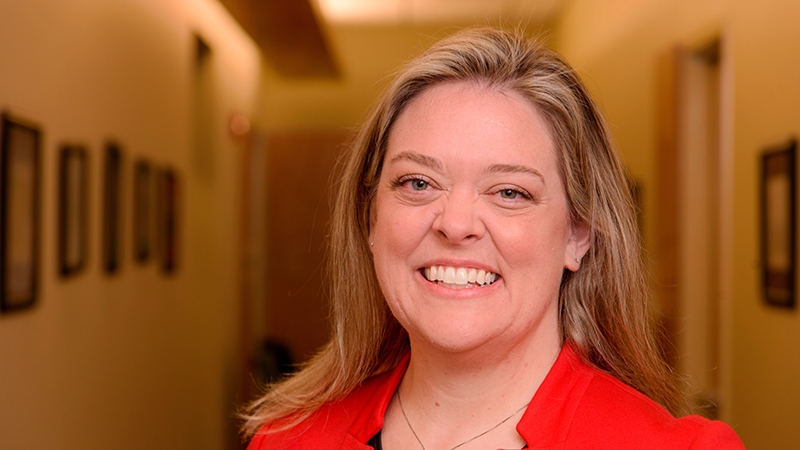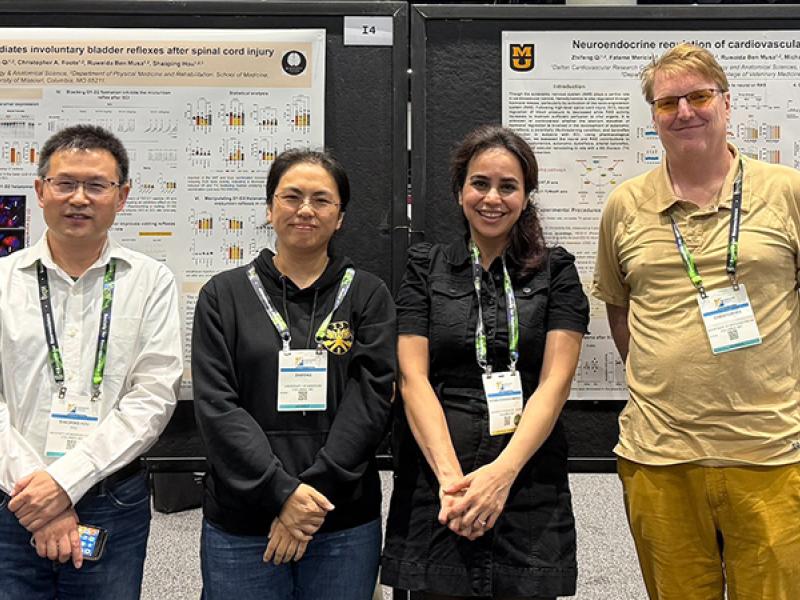
Primary care providers are often the first to care for children with autism spectrum disorder. Two new studies from a University of Missouri School of Medicine researcher reveal a range of barriers clinicians face in recognizing and treating autism symptoms, as well as evidence that an innovative tele-mentoring program – ECHO Autism – helps reduce these barriers.
The research from principal investigator Kristin Sohl, MD, associate professor of pediatrics at the MU School of Medicine, was published in two recent journal articles. The first study published in the Journal of Pediatrics, surveyed primary care providers on what barriers they face in providing quality care to children with autism. The most common barriers reported by primary care providers related to a lack of knowledge and confidence in providing effective care and resources for children with autism. In fact, 85% of PCPs in the study identified a lack of confidence in managing behavior as a significant barrier to caring for children with autism, and 81% reported limited knowledge about autism resources.
In the largest and most rigorous study of its kind, Sohl and her collaborators tested a new model for addressing these needs. In the first large-scale, randomized trial of the tele-mentoring program, ECHO, the research team found the program can effectively equip PCPs with increased knowledge and confidence and reduce barriers to caring for patients with autism.
The Extension for Community Health Outcomes, or ECHO, model was created by Dr. Sanjeev Arora, a physician at the University of New Mexico, originally designed to train community-based physicians and nurses in effective treatments for hepatitis C.
“We have been using the ECHO framework to mentor community-based physicians and nurse practitioners in best-practice screening, identification and management of common medical and psychiatric symptoms in autism since 2015,” Sohl said. “With funding from the Health Resources and Services Administration of the U.S. Department of Health and Human Services through the Autism Intervention Research Network on Physical Health, we were able to conduct the first large-scale study of the effectiveness this innovative model.”
Published in JAMA Pediatrics, the world’s top pediatric journal, the second paper included 10 ECHO Autism teams at academic medical centers participating in the Autism Speaks Autism Treatment Network in the U.S. and Canada, who trained a total of 148 PCPs in underserved areas. Through the ECHO Autism program, PCPs connected by videoconference with a team of autism experts, including a physician specializing in autism, a psychologist, a dietician, a parent and an autism resource specialist. The six-month program included 12 two-hour sessions with the interdisciplinary team that included lectures, case presentations, guided practice and discussion.
The researchers found that after participation in the ECHO Autism program, PCPs increased both knowledge and confidence in their ability to provide effective care for children with autism. Providers also reported reduced barriers to caring for children with autism in their primary care practices.
“When families are worried about their child’s development they are seeking answers from their PCP,” Sohl said. “This study demonstrates that ECHO Autism reduces PCPs perceived barriers caring for children with autism and therefore may increase access to best-practice care for children with developmental concerns and autism in rural and underserved populations.”
In addition to Sohl, contributors included lead author Micah Mazurek, PhD, associate professor and director of the University of Virginia’s Supporting Transformative Autism Research initiative; Karen Kuhlthau, MD, associate professor of pediatrics, and Robert Parker, MD, associate professor of medicine, at Harvard Medical School and Massachusetts General Hospital. The research was supported by the Health Resources and Services Administration of the U.S. Department of Health and Human Services under cooperative agreement UA3 MC11054 – Autism Intervention Research Network on Physical Health.





